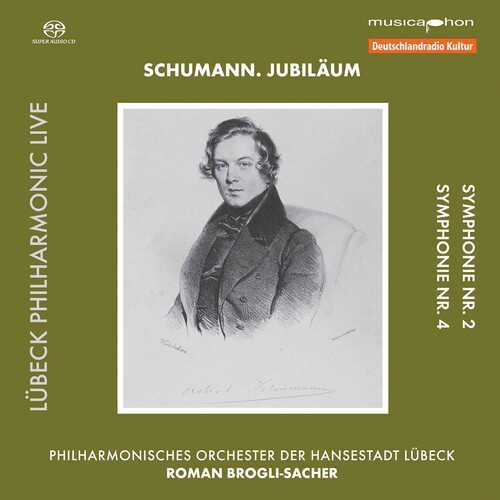Show results for
Deals
- 4K Ultra HD Sale
- Action Sale
- Alternative Rock Sale
- Anime sale
- Award Winners Sale
- Bear Family Sale
- Blu ray Sale
- Blues on Sale
- British Sale
- Classical Music Sale
- Comedy Music Sale
- Comedy Sale
- Country Sale
- Criterion Sale
- Electronic Music sale
- Fantasy Film and TV
- Folk Music Sale
- Hard Rock and Metal Sale
- Horror Sci fi Sale
- Jazz Sale
- Kids and Family Music sale
- Kids and Family Sale
- Metal Sale
- Music Video Sale
- Musicals on Sale
- Mystery Sale
- Naxos Label Sale
- Olive Films on Sale
- Page to Screen Sale
- Paramount Sale
- Pop and Power Pop
- Rap and Hip Hop Sale
- Reggae Sale
- Rock and Pop Sale
- Rock Legends
- Soul Music Sale
- TV Sale
- TV Sale
- Vinyl on Sale
- War Films and Westerns on Sale

Schumann Jubilee
- (Hybrid SACD)
- Format: SACD
- Release Date: 7/27/2010

Schumann Jubilee
- (Hybrid SACD)
- Format: SACD
- Release Date: 7/27/2010
- Orchestras: Philharmonisches Orchester der Hansestadt L beck
- Label: Musicaphon
- UPC: 4012476569208
- Item #: 2137476X
- Genre: Classical
- Release Date: 7/27/2010

Product Notes
Giving new impetus to the genre of the symphony in the nineteenth century, after the achievements of Ludwig van Beethoven, was a just as ambitious as problematic undertaking. Even Robert Schumann did not find it easy to deal with hearing "the giant marching behind oneself". At the end of the 1830s Schumann formulated the dilemma: "When a German speaks about symphonies, he is speaking about Beethoven: the two names are one and indivisible for him, are his joy, his pride. Just as Italy has it's Naples, the Frenchman his Revolution, the Englishman his navy, etc., the German has his Beethoven symphonies. Now that the creations of this master have coalesced with our heart, some of the symphonic [creations] even having become popular, one might think that they must have left behind deep marks that would show in the first of the works of the same genre from the immediately following period. This is not the case. We indeed find echoes; preservation and mastery of the great form, where ideas appear one after the other, stroke upon stroke, and yet only seldom linked together by an inner spiritual bond, with a few exceptions. "It is clear here that the path back to Haydn and Mozart is not an option - and picking up the thread of the exemplary individualism of Beethoven's symphonies appears impossible. The knowledge of the problems of innovative symphonic design also characterizes Schumann's path to the large form. Early attempts remained unfinished; nevertheless, in 1829 he reported to his piano teacher and later father-in-law Friedrich Wieck: "But did you know how it agitated and egged me on, and how I could already have gotten to op. 100 in my symphonies, had I written them down, and how I actually feel so at ease in the whole orchestra."

